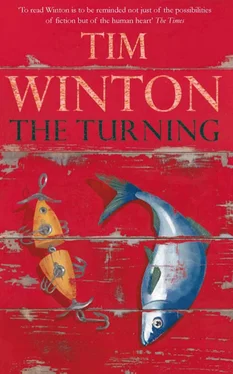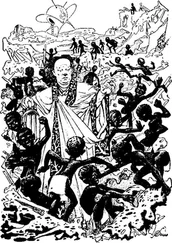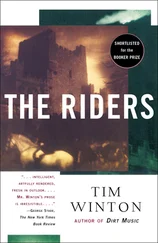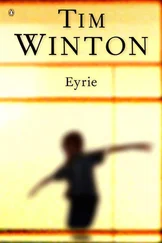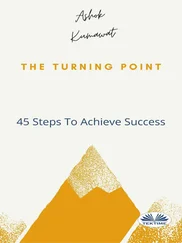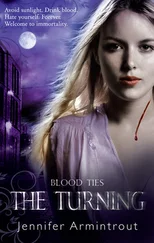In the days after poring over the photos, Ricky seemed more tender and solicitous. It was as though he finally understood that they were both motherless. Their Lego projects were quiet affairs. They sat at the table in the weak afternoon light with only the companionable scratch of pencils passing between them.
Dyson began to think about getting a job. For years he taught woodwork and outdoor ed, but after Ricky was born and the depression took hold of Sophie, he spent so much time on leave that he had to resign. So many emergencies, hospitalizations, sleepless nights. When things were stable he operated as a mobile handyman. The flexible hours allowed him to be around to pick up the debris when things unravelled at home. But it was fifteen months since he’d worked at all and he’d come south without any solid idea of what he might do for a job down here. It wasn’t a matter of urgent concern. He owned this house and the place up in the city was let, so he didn’t need much money. A job was more about adding some shape to his new life, meeting people he could start from scratch with, free from pity or recrimination. It would all have to be new. There was no point in seeking out people he’d gone to school with a decade ago. It was a small town but hopefully not so small that you couldn’t choose your company.
The day he got Ricky settled into kindy, he took a walk down the main street with a view to wandering along the wharves to think about his prospects. He was barely halfway to the docks when a woman called his name.
Peter Dyson! cried a tall grey-haired woman in her sixties. It is you!
She stood in the doorway of a newsagency with a girl of seven or so whose lank blonde hair fretted in the wind.
Mrs Keenan?
Marjorie, she said with mock sternness. You’re not a boy anymore.
How are you? he asked.
Gobsmacked. Don’t just stand there, boy. Come and give me a hug. I don’t believe it!
Dyson stepped up and embraced her for a moment. He’d almost forgotten what another adult body felt like. For a moment he found it difficult to speak.
Look at you, she said. Just look at you.
He managed to laugh. Marjorie Keenan was still sprightly but her face was lined. She seemed older than she was.
And what brings you back to town? she asked, composing herself and pulling the child gently into her hip.
Oh, life I spose. I’ve moved into Mum’s place.
I don’t believe it! she declared with delight.
Well, neither did I. But there we are.
Come for dinner. Don’d love to see you.
Maybe I will some time.
Bring your family.
That’d be nice.
You know that I’ll keep you to it, she said with a smile.
I don’t doubt it for a minute.
Dyson looked at the little girl who chewed her lip.
This is our Sky, said Marjorie Keenan.
Hello, said Dyson.
I’ll chase you up, said the old woman.
Dyson laughed and stepped back into the street. He headed down to the town jetty with a creeping sense of disquiet. It was the child, Sky. Of course it was possible that she was a neighbour’s daughter or one of the many strays of the sort he used to meet at the Keenans’ himself when he was a schoolboy. They were warm, kind people, Don and Marjorie, and their place was often a haven for runaways or foster kids, the beneficiaries of one church mission or other. Sky had the shop-soiled look of one of those children. But the dirty-blonde hair and the way she clung to Marjorie made him think that she was a grandchild. She had to be Fay’s.
On the jetty old men jigged for squid with their heads lowered against the wind. Dyson stood out there looking across at the yacht club and the rusty roofs of Cockleshell on the farther shore.
Fay Keenan. He hadn’t even considered that she might still be in town. Hadn’t she left long before him? He had anticipated some awkward encounters. There would be the people he’d gone to school with, the ones who always talked of shooting through to the city at the first opportunity but never actually left. He prepared himself for their prickly defensiveness, consoling himself in the knowledge that after ten years these meetings would only be momentary. Most people would settle for a wave in the street, a brief greeting in Woolworths. But he hadn’t considered folks like the Keenans. They were full-on people. They were salt of the earth. They would never settle for just a meeting on the main drag.
And Fay. With a daughter. He hadn’t considered that at all.
For a few days Dyson kept to the house. He only went out to take Ricky to school and collect him afterwards. All day he absorbed himself in little projects of household repair and modification. He told himself it was the rain that kept him at bay but in truth he had the jitters. He was back to feeling that weird, diffuse guilt which had dogged him all his life. He’d given up teasing that one out years ago. The old man’s early death, the disappointment he was to his mother, the business with Fay. And, God knows, the unravelling of Sophie. It was old news but ever fresh in him. The way he’d jumped, blushing already, when Marjorie Keenan called his name.
With Ricky beside him, he lay awake at night with real misgivings about coming home. Irony he could deal with, but the complications of history might be another matter.
On the third day, in the early afternoon, Marjorie Keenan came knocking as he knew she would. Come for dinner tonight, she told him. She had a lamb leg big as a guitar. There was no way out.
The Keenans lived down by the surf beach in a shabby art deco place beneath Norfolk Island pines. Dyson arrived at six and stood for a moment at the door, bracing himself for the necessary explanations about his status as a single parent. Ricky looped his fingers around Dyson’s belt. Both looked up at the soughing pines before Dyson knocked.
Marjorie squeezed each of them on the doorstep and dragged them indoors. The house was unchanged since the days he’d come here to play pool and grope their daughter furtively in the garage. In the hallway a candle burned before an icon of a severe Russian Christ. There were seascapes on the walls and a portrait of the Pope. The place smelled of meat and potatoes and the strange lemony odour of old people. Somewhere in the house a television blared.
In the kitchen Don Keenan rose on sticks and met Dyson with a hand outstretched, copper bracelet gleaming. There were tears in his eyes.
Look at you, he said. Lord, just look at you.
Long time, Don.
The old man sat and wiped his face. Yeah, he said brightly. And time wounds all heels, eh?
Except that it’s his knees that’ve given out, said Marjorie. That’s a lifetime of football for you.
They beckoned him to sit and Ricky edged onto his lap, reserved but curious. Dyson saw that the boy was transfixed by the old man. The tears, the florid cheeks, the Brylcreemed hair, the walking sticks. Ricky curled against his father. Dyson smelled the sweetness of his scalp.
Mister Keenan was my coach, Rick. When I was a boy. He was a gun footballer, you know. Played for Claremont. Three hundred and twenty-two games for Railways — that’s a team here.
You like footy, Ricky? the old man asked.
The boy nodded.
Who’s your favourite player, then?
Ricky looked at his father.
Go on, said Dyson.
Leaper, said the boy.
Ah, said Don. Now he can play!
Lamb’s ready, said Marjorie.
Still cooking on the woodstove, said Dyson admiringly. Look at the size of that thing.
It’s the Rolls-Royce of ranges, that, she said.
Big as a blessed Rolls-Royce, too, said Don.
Just as their plates came and the old man was carving the meat, the thin blonde child came into the kitchen and took a seat.
You met Sky, said Marjorie.
Читать дальше
